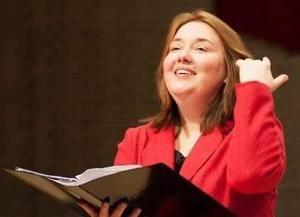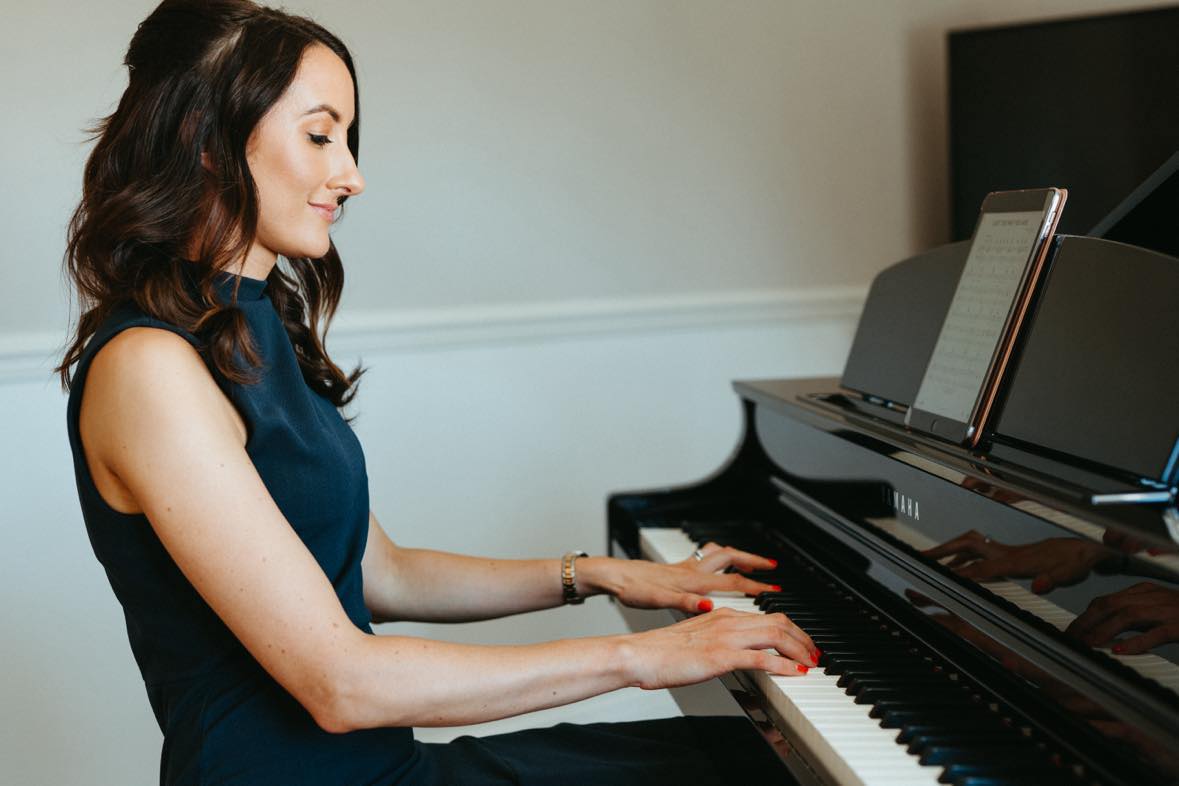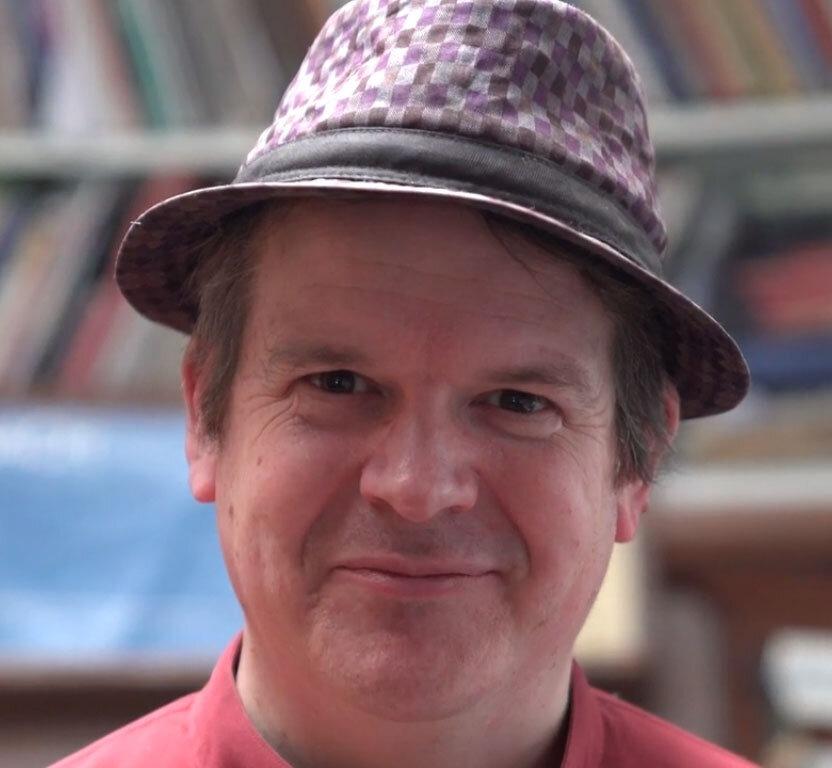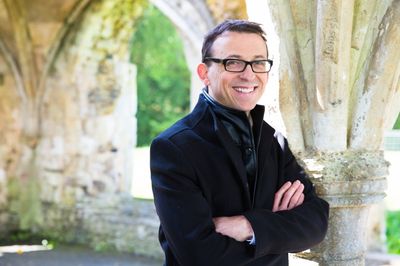The Maestro Online
Classical Improvisation Masterclass Courses
The Ultimate Aspirational Classical Improvisation for Organists & Pianists
Pianists and Organists from around the world deliver exquisite piano and organ improvisation lessons online.
Perfect for inspired pianists, undergraduates, organ exams, organ positions, organ scholars and organ diplomas.
100% 5 Star Reviews
Your Purchase Options
Subscribe to Monthly Membership
Exclusive access to all masterclasses and courses.
Tremendous value, very popular, convenient for all.
Much cheaper than weekly lessons!
£29.99 (£15.00 for newsletter subscribers)
Buy Now
Purchase individual masterclasses.
Great for presents or one-off purchases.
Learn at your own pace, again and again.
£19.99 per masterclass
Welcome to a shop of holistic music courses and masterclasses that will leave a lasting impression!






Renaissance, Baroque and Classical Improvisation
Sietze De Vries
Keyboard Harmony Unique Approach Chorale Preludes Developing Trios and Chorale Preludes
Fugue, Choral & Film Composition
Stephane Mottoul
From Frere Jacques to Fugue
2 Part Counterpoint
3 Part Counterpoint & Trios
4 Part Counterpoint & Fugue
Silent Movies, Toccata, Romantic Era,
Performance Anxiety & Orchestration
Our Classical Masterclasses in Detail
THE MAESTRO ONLINE
Organ Improvisation
Renaissance Improvisation
from 2 chords to Renaissance Dances
The perfect starting point if your improvisation experience is limited.
Dr Robin Harrison FRSA, The Maestro Online, former student of Noel Rawsthorne (Liverpool Anglican Cathedral) and Roger Fisher (Chester Cathedral).

2 Chords with Renaissance, Baroque, Classical, Romantic & Tango twists
THE MAESTRO ONLINE
Classical Piano Improvisation (Partimenti) & Hymn Transposition
Learn the way Mozart learned. No, it wasn’t the Roman numeral method that we use today, it was influenced by formulas thanks to the CPE Art of Keyboard method.
Dr Robin Harrison FRSA, The Maestro Online, former student of Noel Rawsthorne (Liverpool Anglican Cathedral) and Roger Fisher (Chester Cathedral).

Parallel 3rds
- Solfege next next steps
- Solfege Up and Down the Ladder
- Up and Down the Ladder in C
- Piano Improv 2: Neighbour Notes
- Piano Improv 2b: Upper Neighbour Notes
- Piano Improv 2: LN, UN Consolidation
- Piano Improv 3: Turn (Summersaults)
- Piano Improv 4a: Scales and Ornaments
- Piano Improv 4b: Scales and Ornaments
- Out in the Real World: Mozart
- Out in the Real World: Mozart
- Out in the Real World: Bach
- Out in the Real World: Handel
- Improvisation
6ths, 1st Inversions, Suspensions & Modulations
- Solfege Next Next Steps
- SOLFEGE: Up and Down the Ladder
- Improv 1: Down the Ladder in C
- Improv 2: Neighbour Notes
- Piano Improv 2b: Upper Neighbour Notes
- Improv 3: Turn (Summersaults)
- Improv 4a: Ascending Scales and Ornaments
- Improv 4b: Descending Scales and Ornaments
- Improv 5: 7-6 Suspensions
- Improv 6: 2-3 Suspensions
- Improv 7: First Inversion Melodies
- Improv 8 consecutive first inversions
- Improv 9a: First Inversion Figurations
- Improv 10a: 7-6 Top Note Late
- Improv 11: 5-6
- Real World 1: Beethoven Opus 10
- Real World 2: Beethoven Opus 26
- Real World 3: Telemann TWV40
- Real World 4: Purcell
- Real World 5: Mozart
- Real World 6: Daquin
- Real World 7: Chopin
- Real World 8: Bach Invention
- Real World 9: Bach Fugue
- Real World 10: Bach Prelude Fugue
- Improvisation
9 Ways to Harmonise a Scale
- Parallel 3rds
- 1st Inversions
- 1st Inversions With Suspensions
- Rule of the Octave
- Stepwise Romanesca
- The Prinner
- 4-2s Against the Bass
- Passing Through 6-4s
- Ascending 5-6s
- Mini Improvs Intro
- Mini Improvs 1
- Mini Improvs 2
- Mini Improvs 3
- Mini Improvs 4
- Mini Improvs 5
- Mini Improvs 6
- Mini Improvs 7
- 4 Beats Per Bar Drum Tracks
- 3 Beats Per Bar Drum Tracks
- 6 Beats Per Bar Drum Tracks
- Summary
Transposition
- Solfège: Let’s Start With a Tune
- Layering: Sing and Play
- Layering: At the Keys
- Arpeggiate Bass Up
- Up One, Down the Next
- It’s only a Graph
- Reading Chord Letters
- Reading Roman Numerals
- Playing Specific Inversions
- Spot the Dom 7ths & viis
- First beats of the bar – Inner Hearing
- Alternate Chords Inner Hearing
- Formula 1: Cadences Imperfect
- Formula 2: Cadences Interrupted
- Formula 3: Cadences & Cadential 6/4s
- Formula 4: Common Extended Perfect Cadences
- Formula 5: Parallels
- Formula 6: Passing 6/4s and I-vib-I
- Formula 7: Roots 5th Apart/Circle of 5ths
- Bus Journey Elsewhere North, South Sad Arrivals
- Further the Better
- Soloing Out
- On Top of Keys
- Extra Tips
THE MAESTRO ONLINE
Baroque Organ Improvisation Classes
from Simple Keyboard Harmony to advanced extended Chorale Preludes and Trios by Sietze De Vries.
Keyboard Harmony that puts the Melody First, then extending to Baroque Counterpoint.
An Interview with Sietze De Vries
Sietze De Vries is an internationally respected organist, improviser and educator.
Sietze began playing by ear at the age of 4 and began formal organ lessons at the age of 9. He found the traditional route of learning to play an instrument uninspiring and boring. Creativity is at the core of his soul!
Besides becoming a performer of international standing, having played by ear since the age of 4, Sietze has become a highly regarded improviser. His improvisations in a Baroque style are not just authentic, but fun and a joy to listen to! Bach, Pachelbel and others form a great inspiration for Sietze and thus his improvisations reflect their styles.
Sietze carries this passion through to his teaching. He is renowned for conveying the most complex of ideas in the simplest of ways. The “Sietze De Vries” method starts at a level that all can understand and ends with fantastic Baroque organ improvisations (which you will still readily understand!).
1. Twinkle Twinkle: Taking Your 1st Flight (I-IV-V, Theme & Variations)
Sietze starts with one chord, C Major (and its inversions), then adds a melody that everyone knows, Twinkle Twinkle.
Learn the I-IV-V chords and harmonise a melody with only one hand.
Move the melody into the tenor and bass.
Add different motifs and patterns within chords to create more varied textures.
You will now have your own set of theme and variations.
Laying the Foundations
One Note
One Chord: The Triad
Inversions
Texture: Broken Chords, Fanfares, Different Manuals
I-IV-V Chords
The Theme
Complete the Song, Play by Ear!
One Hand Harmony
Twinkle RH Harmony, LH Bass
Transposition (Different Keys)
The Variations
Variation 1: Triple Ripples
Variation 2: Semiquaver Toccata
Variation 3: Put Your Foot Down
Variation 4: LH takes the Melody
Variation 5: Pedal Solo, 2’
Variation 6: Walk the Bass
Variation 6b: Where Ya Walkin’ To
Variation 7: Change that Metre!
Bonus Material to Explore
2. Twinkle Twinkle Brain Gym (add ii-iii-vi, create a Chorale Prelude)
Here we explore the relative minor key and its i-iv-v chords and discover that they are chords ii-iii-vi in the relative Major.
Twinkle is now reharmonised with chord I, ii, iii, IV, V and vi.
Add suspensions, explore the minor.
Your first Chorale Prelude will now form.
Root Positions, Chords I-vi
1.Switch to the minor: ii iii vi
2.Same Note, 2 Different Chords
3.Renaissance Dance & Modalism
4.Same Note, 3 Different Chords
Movement Through 3rds
5.Romantic Era 3rd Shifts, Mendelssohn Wedding March
6.Sequences through 3rds
Chorale Preludes
7.Old 100th Chorale Prelude
Adding the Polish
8.Inversions
9.Suspensions
10.The Full Combo
11.Additional Melodies to Explore
3. Extended Chorale Prelude, Early Trios and Fugal Textures
Help, my piece is only 30 seconds long!
The answer is here! Sietze takes The Old 100th as his theme.
Create a variant of the 1st phrase.
Create sentences that form episodes in between phrases of the main tune with consistent 4 bar structures.
Add suspensions and ornaments.
Consider bass lines.
Explore inversions.
Finally, develop more advanced counterpoint such as trios and fugue-like textures.
From Ditties to Pieces!
Episodes & 4 Bar Phrasing
Key Structure & Modulations
Combining Chorale Prelude, Keys, Episodes
Inversions to improve Bass Lines
2 Part Episodes for Trio
Diminutions
Trio Theme Entry
From 4 Part Chords to 3 Part Counterpoint
Manuals only Trio, Melody in the Middle
Strong Bass Lines Promoting Counterpoint
Beg, Steal, Borrow, Bach the Guru
THE MAESTRO ONLINE
Compose
Classical Melodies
& Initial
Symphonic Forms
Organ Improvisation: From Phrase to Extended Form, Dr Jason Roberts
Dr Jason Roberts, winner of a major national USA American Guild of Organists Improvisation competition, takes Schoenberg’s approach to improvisation considering the period, the sentence and extended form, combined by his wealth of ideas on texture and accompaniment. The result allows you to create more symphonic style improvisations.
An Interview with Dr Jason Roberts
Dr Jason Roberts is a highly renowned organist at Blessed Sacrament, New York. Formerly he was at St. Bartholomew’s Church in Manhattan, New York City which has over 2000 members and has an equally impressive history of stunning musicians..
He began his musical career as a chorister at St. George’s Cathedral in Perth, Western Australia; and is a graduate of Rice University, the Yale Institute of Sacred Music, and the Manhattan School of Music. He is winner of the 2008 American Guild of Organists National Competition in Organ Improvisation and the 2007 Albert Schweitzer Organ Competition USA, and he has been a finalist at competitions in St. Albans, England and Haarlem, The Netherlands.
Jason spent several years as Organist/Choirmaster at St. James’s Episcopal Church in West Hartford, Connecticut, USA before moving to New York in 2014. He serves on the faculty at Westminster Choir College in Princeton, New Jersey, and keeps an active recital schedule.
His compositions have been performed at Princeton University Chapel in New Jersey, at the Walt Disney Concert Hall in Los Angeles and at Westminster Abbey in London, among other venues. Roberts has served on the music ministry at St. Bartholomew’s Church in New York and at St. James Episcopal Church in Hartford, Connecticut, and has taught on the faculty at Westminster Choir College. He has a PhD from Manhattan School of Music, a master’s degree from Yale University and an undergraduate degree from Rice University in Houston.
Make a Tune 1: Q&A
Schoenberg was a famous composer who also had a unique perspective on the construction of music alongside a very broad historical knowledge. One of his famous books (these could even be called “text books”) is called “Fundamentals of Composition”. It’s this book that has inspired this series of courses.
“A theme – the “Period” – it’s a closed form, harmonically stable. At the end you feel like you’ve arrived somewhere and it’s time to rest.” Jason Roberts.
1. Construction (Eine Kleine Nachtmusik)
2. Melodic Contour
3. Thematic Skeletons
4. Harmonic Implications & Cadences
5. Modern Variants (Stravinsky)
6. Traditional Variant (Cwm Rhondda)
7. Extended Variant (Mozart K279)
8. Recognisability & the Elements of Music.
Make a Tune 2: Sentence Form
This is where the true symphonic magic evolves. You don’t want chorale preludes or fugues? Well, this is definitely the answer for you then! Develop melodies like a late Romantic or early 20th Century composer!
1. What is a Sentence?
2. Beethoven: Piano Sonata Fm.
3. Bocherini: Minuet.
4. Beethoven: Symphony
5. Vierne: Symphony 1, Finale.
6. The I-V Battle – 1st Idea Skeletons.
7. Arpeggios versus Scales.
8. How to construct your own Mini Development.
9. Use of beginning and ends of original phrases to create Mini Developments.
10. Application to Stanford: Engelberg.
11. Jason Roberts Improvisation on Engelberg.
Make a Tune 3: Sequences
“When you make a stable theme, it usually ends with a perfect cadence and you feel satisfied at the end, but a sequence is really the opposite of that; you’re trying to build tension, you’re going to far away keys and it’s much more unstable” , Jason Roberts.
1. What is a Sequence?
2. How to use the Circle of 5ths
3. Creating 2 Part Imitation in a Sequence
4. Creating 3 Part Imitation in a Sequence
5. Adapting and extending famous examples
6. Liquidation
7. Chromatic Choir Warm Up Method (V-I)
8. Chromatic Bass: Secondary Dominants
9. Beg, Steal, Borrow
Make a Tune 4: Form
Now Jason takes the work done thus far and creates extended forms including Minuets, Scherzo’s and from there you can create any structure that you want.
You will be amazed at the music that you can now improvise and how great it sounds!
Musical freedom awaits!
THE MAESTRO ONLINE
From Frère Jacques to Fugue by Stéphane Mottoul Organ Improvisation: Counterpoint in Music
You may wish to prepare yourself for Stéphane’s courses by following the Classical Improvisation Journey Hand in Hand Parallel 3rds, Parallel 6ths and “9 Ways to Harmonise a Scale” Partimenti Courses first. These will give you an excellent grounding in improvising counterpoint by developing your parallel 3rds, 6ths and chord progressions.
An Interview with Stéphane Mottoul
Stéphane Mottoul is one of Europe’s leading young concert organists. He has studied with leading names in Stuttgart, Paris and throughout Europe including Ludger Lohmann (organ), Pierre Pincemaille, Thierry Escaisch and Lazlo Fassang (organ improvisation), as well as Jean-François Zygel, and Yves Henry (harmony, counterpoint, fugue).
He has one prizes in the Dudelange International Organ Competition (both First Prize and Public Prize in organ improvisation). Stéphane was also awarded the Belgian respected Hubert Schoonbroodt Prize for excellence in organ playing.
Stéphane performs throughout Europe and North America including Brussels Cathedral, the Centre for Fine Arts in Brussels, Symphony House in Liège and the Notre-Dame Basilica in Montreal (Canada).
Stéphane’s recording ‘Maurice Duruflé: Complete organ works’ (Aeolus, 2018), has received much praise.
Stéphane is currently organist at the Hofkirche St. Leodegar in Lucerne (Switzerland).
2 Part Counterpoint
Canon
Parallel 3rds & 6ths
Contrary & Parallel Motion: Stéphane Solo 1
Changing Time Sigs & Subdividing Beats
Ornamented Head of Theme
Imitation: Stéphane Solo 2
Minor: Incorporating Bach
Countersubject & Character
Subdominant: Stéphane Solo 3
Ternary Form and Relative Minor: Stéphane Solo 4
Modulation to the Dominant: Stéphane Solo 5
Summary
3 Part Counterpoint & Trios
3 Part Canons
3 Part Texture with Simple Parallel 3rds
3 Part & Parallel 3rds: Stéphane Solo 1
Trio Sonata with Pedal Solo: Stéphane Solo 2
Circle of 5ths 1: Vivaldi Influenced
Circle of 5ths 2: Arpeggios
Circle of 5ths 3: Parallel 3rds
Circle of 5ths 4: Root Position Triads
Circle of 5ths 5: Root Position Triads Bach & Purcell
Circle of 5ths 6: Contrary Motion & Parallel 6ths
Circle of 5ths 7: Vivaldi Concerto Dm Op. 3 Chords
Circle of 5ths 8: Vivaldi Concerto Dm Op. 3 Intervals
1st Inversions: Parallels
1st Inversion 7-6s: Ascending
1st Inversion 7-6s & 2-3s: Descending
1st Inversion 4-2s
Root Position 4-2s
9-8, 7-6, 3-4-3: Bach
Complete Improvisation: Stéphane Solo 3
4 Part Counterpoint & Fugues
Expositions
Countersubjects
Invertible Counterpoint
Episodes and Modulations
Stretto to create excitement
Tonic Pedal Points
Dominant Pedal Points
Inverted Pedals
Sequences.
THE MAESTRO ONLINE
The Will Todd Composition & Improvisation Masterclasses
Learn to Compose & Improvise Music that “is YOU”
Will Todd on Composition and Improvisation - Becoming You. Spice Up Your Life!
Will Todd is one of the UKs Leading Composers of our generation. His music has been performed at major international events all over the world and he is incredibly respected by all.
Photo Credit Andy Holdsworth
1. Will Todd's Spice Rack
Just how do you create a unique harmonic language that ‘sounds like you’?
This structured course will start you on your own voyage of discovery.
Tofu in C – Add Notes to a Triad.
Overlappy: Superimpose Triads.
What Chord Comes Next?: Lead Sheets.
Will’s 3 Chord Categories.
Connecting Chords by Step.
Shifting Chords by 3rd.
Connecting Chords Revisited: Dominant 7ths.
Transposition of Chord Progressions.
Escape your Default.
Familiar Progressions are OK.
The Bigger Picture: Form & Harmonic Sentences.
Summary.
2. Playfulness
Learn how to compose with one of the UK’s leading international composers.
In this course, Will takes us through tasks and ideas that lead to melodic discovery, releasing the fun, excitement and spontaneity of our inner child. He helps us find things that make us react or surprise us. He generates excitement at sound and therefore truly stimulated our composition process. He helps us compare ideas that create reactions that we expect and ones that don’t in melody and harmony. He also supports us in discovering stylistic connections between rhythm, harmony, melody and composition.
By the end of this course you will also have a range of strategies for when you struggle to feel creative.
The Discovery Play Channel
1. Playfulness: Find the Child in You.
2. The Rules of Melodic Character.
The Surprise Channel
3. In the Playground: Melodic Surprise.
4. Upset the Apple Cart: Harmonic Surprise.
5. Pushing the Boat Out As Far As You Dare.
6. Dissonance & Shape over Resting Chords.
A Sense of Style
7. Playful Rhythm & Style.
Pearls of Wisdom
8. Help! My Mind is Blank!
9. No Comparisons Here: Box of Chocolates.
3. Will Todd's In the Mood, Are You?
Learn how to be expressive, reflecting moods and emotions through your music making.
In this course, Will takes us through a much deeper concept of music and emotions via his improvisation, leading to more formal compositions.
The most significant thing that he teaches is the fact that emotions change and transition from one moment to another is important in music. It’s really revealing how his music ‘moves’ and has direction because of his deeper understanding of people, their feelings, responses to situations, scenes and life in general.
Will’s high level of emotional intelligence informs his skill in improvisation and composition.
Introduction
1. The Composer: Moods & Emotions.
Static Trapped Emotions
2. Nervousness.
3. Painting a Scene: Mountain Panorama
Early Emergence
4. Boredom.
Emotion as a Changing Event
5. Royal Fanfare to Relief.
6. Spacecraft Launch.
Summary
7. The Will Todd Sign of Lick.
8. Summary.
THE MAESTRO ONLINE
The Patrick Cassidy Composition & Motivic Development Masterclasses
Learn to Craft from a Hannibal composer who trained under Hans Zimmer.
Patrick uses his piece Vide Cor Meum from the Hannibal movie as an example.
He also gives you EXCLUSIVE downloads including Sibelius Score, Logic files, mock up recording, score with his analysis, conductor score, choral score and more.
Patrick Cassidy on Composition and Motivic Development
Enjoy this interview with the legend that is Patrick Cassidy. Discover his humble beginnings in Ireland, his wonderful success, moving to America, training under Hans Zimmer, his wonderful Hannibal success and his global recognition. Did you know that he has been rewarded with the title of Cavaliere dell’Ordine della Stella d’Italia – Knight of the Order of the Star of Italy? He is the only living composer in the Warner Classics CD, 40 Most Beautiful Arias.
Whilst Hannibal is an astonishing moment in Patrick’s career, he’s a mile off being a one-hit wonder. Astonishingly, his Children of Lir, the first major symphonic work written in the Irish language which was recorded by the London Symphony Orchestra, remained at Number One in the Irish Classical Charts for over a year. This led to his receiving the Medal of Honour and Distinguished Alumni Award from The University of Limerick.
Study Patrick’s Course and hone your compositional skills. Included in this course are EXCLUSIVE downloads including Sibelius Score, Logic files, mock up recording, score with his analysis, conductor score, choral score and more.
THE MAESTRO ONLINE
Silent Movie Improvisation
by Darius Battiwalla
Dances, Comedy, Drama, Phantom of the Opera, Toccatas and More
Darius Battiwalla was raised in Islington and later studied music at Leeds University before studying for his Masters at the Royal Northern College of Music.
He directs the Sheffield Philharmonic Chorus and has even had them performing from memory. They have appeared at the Proms and on recordings for Chandos with the BBC Philharmonic, including the newly reconstructed score of Elgar’s Crown of India with the BBCPO and Sir Andrew Davis for Chandos Records. Darius has led the choir’s collaboration with Black Dyke Band in a series of recordings in the band’s Black Dyke Gold series, and in a CD of Christmas music including a number of his own arrangements.
He has worked regularly as guest chorus master or conductor with many other choirs including the Northern Sinfonia Chorus, Lucerne Festival Academy, Leeds Philharmonic Chorus, Huddersfield Choral Society, CBSO chorus and Netherlands Radio Choir, with whom he has specialised in contemporary music, having prepared them for works by Berio, Boulez, Ligeti, and the premiere of Stockhausen’s EngelProzessionen. In 2014 he worked with the Lucerne Festival Academy in preparation for a performance of Berio’s Coro to be conducted by Simon Rattle, and in 2018 was guest chorusmaster for the Northern Sinfonia for Paul McCreesh. In 2019 he conducted the BBC Philharmonic in a CD of music for the BBC Young Choristers of the Year.
Darius was recently appointed Leeds City Organist, performing regularly in the highly successful recital series in Leeds Town Hall, and has given organ recitals at cathedrals and concert halls throughout the country, as well as recordings and broadcasts on radio 3. He has given the recitals for the Royal College of Organists’ and Incorporated Association of Organists’ annual congress, appeared as soloist and orchestral organist and pianist for the BBC Philharmonic and Halle orchestras. 2019 saw the premiere of a new work for organ and brass band with the Black Dyke Band, a performance of Karl Jenkins’ organ concerto at the Bridgewater Hall, solo recitals in Leeds, York and London, and a live broadcast on radio 3 of Janacek’s Glagolitic Mass.
Darius also improvises for silent films on both organ and piano, including a regular silent film series at the National Media Museum. Over the past ten years he has improvised scores to more than fifty silent films on both organ and piano, not only in cinemas but in churches and cathedrals throughout the country, as well as a regular series for the National Media Museum. His improvised score for Phantom of the Opera at the RNCM in 2017 was described by theartsdesk.com as a ‘magnificent example of musical creativity…..a real multi-media achievement.’
1. Comedy
This course will cover the following areas:
- An overview of Comedy and Styles used.
- Waltzes
- Polkas
- Ragtime
- Charleston
- Bells
- Falling out of a Window
- Storm
- Additional Resources
Within this course there are a significant amount of interactive scores as templates that help develop different elements of your improvisation along with your computer/phone/device.
You can change the tempo and key of the scores as well as print out your own compositions.
2. Drama
This course will cover the following areas:
- An introduction to drama in movies
- The idee fixe
- Creating Contrasting Characters
- Polonaise and what to do after credits roll
- Building Tension: Superimposed Diminished 7ths
- Undermining Tonatlity
- Sinisters bells and ostinato
- Unusual sounds and special effects
- Chase scenes and toccatas
- Real world toccatas as templates
- Darius in action
THE MAESTRO ONLINE
Sparkling
Toccata & Romantic Symphonic Improvisation
by Nigel De Gaunt-Allcoat
Toccatas, Stylus Fantasticus, Symphonic and French Baroque
Nigel Allcoat
Nigel Allcoat is viewed as a legendary world-class organist and improviser with extensive knowledge of improvisation and organ playing.
He is perceived as one of the finest and most creative musicians of our time and hence has been engaged as an organ and improvisation teacher for Oxford and Cambridge colleges as well as the Royal Academy of Music and the Royal Northern College of Music. He also has been a Professor in Dresden and the St Petersburg Conservatory.
He is particularly known for his love of France and for his love of French music and culture. He has had amazing performance moments within his career such as on the death of Pierre Cochereau, the illustrious organist of Notre Dame in Paris, Nigel was invited to give the memorial concert in Westminster Abbey. He has made many CD recordings and has often featured on the BBC. Nigel was presented to Her Majesty, Queen Elizabeth II at St James’ Palace in recognition of his musical activities in the United Kingdom.
1. Toccatas
This course will cover the following areas:
- Pedal Notes and What’s Our Key?
- The Simplicity of 3rds, the giving of Peace
- Break the 3rds Up
Extended Combos - Ooh Naughty, He Pinched It from Me: the Subdominant Side
- Let’s Extend with a Dominant Middle Section & 6ths
- Practising and Morning Warm Ups
- Single line creativity with 2 hands
- Pattern and Reiteration
- Opening Out the Textures from Baroque to Romantic
- Romantic Harmony as Baroque with Chromaticism
This course refers to many significant historical works by the following composers:
- Froberger
- Muffat
- Pachelbel
- Buxtehude
- Bach
- Franck
- Boellmann
- Dubois
- Gigout
- Widor
2. Stylus Fantasticus (another show-off improvised style)
This course will cover the following areas:
- A Major Chord, Excitement and Meloncholy
- Your Second Chord
- Breaking the Chord Up Creating Textures
- One Chord Leads to Another
- Silence is Golden
- Textural Conversation
- Note Repetition
- Become a Part of the Music
- Ornaments, Salt, Pepper and Terragon
- Find the Folk Music Within You
- Multiple Textures
- Mini Stylus Fanasticus Schema
- How to Practice
This course refers to many significant historical works by the following composers:
- Bach
- Biber
- Bruhns
- Buxtehude
- Froberger
- Pachelbel
- Paganini
- Scarlatti
- Weckmann
3. Romantic Era Colourful Symphonic Improvisation
This course will cover the following areas:
- Your First Chord (don’t be deceived – there’s plenty to do here!)
- Your Second Chord
- Register, Pitch & Imagery
- Colour 1 Chords with Added Notes
- Colour 2 Neapolitan 6ths
- Colour 3 Borrowing from the minor
- Colour 4 Diminished 7ths
- Colour 5 Anchor notes & Chords a 3rd Apart
- Colour 6 Tales of the Unexpected & Augmented Chords
- Motifs & Idee Fixes
- Imagination & Clearing Out the Clutter
This course refers to many significant historical works by the following composers:
- Vierne
- Widor
- Brahms
- Franck
- Clara Schumann
- Robert Schumann
- Liszt
- Schubert
- Chopin
- Ravel
- Nielsen
- Guilmant
- Dupre
- Durufle
- Rheinberger
- Demessieux
THE MAESTRO ONLINE
The Daniel KR
Performance Anxiety
Masterclasses
Daniel has performed on some of the world’s biggest stages and now realises that there’s so much more to being a great performer than just his voice. He is now a highly qualified, experience performance anxiety coach, ensuring that peoples bodies and minds, confidence in their lives and in themselves are all at an optimum.
His clients include My clients have included Classical Brit nominees, famous actors and stars of the West End and opera stages.
Things You Can Do Right Now
In this course Daniel gives you immediate, easy short-term strategies that you can apply straight away to reduce your levels of anxiety.
His calm manner, clear explanations at straight-forward tasks can be used by people of all ages and even in choir, band or orchestra rehearsals.
Let's Evolve (Long Term Strategies)
Here Daniel takes us to the next level. Just as an olympic athlete prepares his/her mind as part of their training for their big race, musicians can also train themselves as part of their daily practice.
Join Daniel on a journey in which you will embrace your inner self and become the best that you can be.
THE MAESTRO ONLINE
The Robert DC Emery
Orchestration & Arranging
Masterclasses
Robert Emery is a stunning musician who developed an ear that’s second-to-none from an extremely early age. As a young person he became involved in church choirs and from there simply grew into one of the most successful pianists and conductors of our day in the UK.
Incredibly, he won the regional BBC Young Musician of the Year twice and reached the best 10 pianists within the competition.
Since the age of 13 he has toured internationally as a recitalist and conductor.
He has released 2 solo piano albums, performed for the royal family and given private recitals for members of parliament
As a conductor, he has conducted the London Philharmonic Orchestra, the Japan, Royal Liverpool, Basel, National, Birmingham and Evergreen Philharmonic orchestras as well as others.
In terms of renowned singers, he has been the conductor for the orchestra for Russell Watson since 2011 and orchestrated plus conductor for the Bat Out of Hell musical for Meatloaf.
Robert now very much gives back to the community and is wanting to help people on their own musical journeys via https://teds-list.com/ which is a free platform that has details about instruments, lessons, what to buy and much more. There is not intention to “sell” here, rather to educate and inspire. He also founded a musical education charity, the Emery Foundation.
Robert’s website, https://www.robertemery.com includes video footage, articles and much more that are of great interest.
Professional Orchestration & Arrangement
Robert takes Summertime and rearranges it with different harmonies and chords – making this a great course for improvisers who want to restyle a piece.
He then orchestrates it to make it a Bond style film theme. This aspect is also great for improvisers because there are quite a few “tricks of the trade” to embellish key melodic and bass elements.
As well as developing advanced arrangement and orchestration skills, there are also quite a few Robert DC Emery pearls of wisdom within this course!














